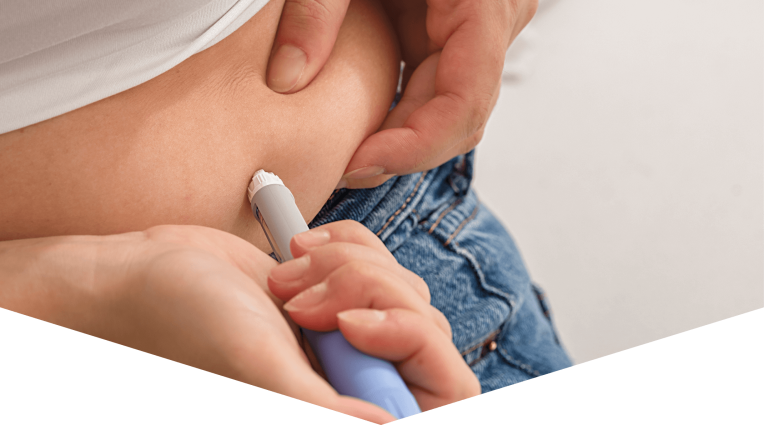
Impact of weight loss measures on oral health
Glucagon-like peptide-1 (GLP-1) drugs such as Ozempic have become more popular for use in weight loss. It’s important that clinicians understand the potential impacts that they, along with other weight loss measures, may have on patients’ oral health.
Maintaining a healthy weight is beneficial for many people. However, the ways in which some may choose to achieve this in the first place may have side effects for their oral health. A healthy diet and exercise are widely considered to be the best way to lose weight. It’s important that clinicians support patients in maintaining their oral health whichever path they choose.
The hidden impacts of weight loss drugs
Research has suggested that adverse effects of GLP-1 drugs on oral health include dry mouth, halitosis, and dysgeusia (altered taste). Often, there is a sweet taste in the mouth, potentially reducing cravings for sweet foods due to an increased sensitivity. This is thought to counteract the cravings for sweet foods that patients with obesity may experience as a result of elevated leptin levels.[i]
Juice cleanse or whole fruits?
For other people, a different approach to weight loss might be more appealing. Juice cleanses have grown in popularity in recent years, often seen as a convenient way to consume more fruits and vegetables. Juice cleanses are marketed as a way to cleanse the digestive system and improve health overall. Whilst this seems plausible, along with the potential risks associated with particularly acidic fruits, juicing removes most of the fruit or vegetables’ insoluble fibre. This potentially diminishes the health benefits afforded by whole fruits and vegetables. Low fibre can have a negative impact on the microbiota, with metabolism and immunity affected.[iv]

Keto diet
Another popular choice for those looking to lose weight or feel healthier is the keto diet. This involves increasing intake of fat, reducing carbohydrates, and consuming moderate levels of protein. The idea behind this diet is that, after some time, the body will enter ketosis – with fat becoming the primary source of energy. However, the diet may reduce levels of vitamin A, C, and K, with vitamin C deficiency linked to poor wound healing and periodontal health[vii], and tooth loss. Additionally, the breath can begin to smell sweet and fruity, a common problem often referred to as ‘keto breath’.[viii]
Assisting patients in maintaining oral health
In order to help patients maintain oral health whenever they are undertaking any weight loss measures, it is useful for clinicians to have a good understanding of the potential risks and to make appropriate recommendations.

It is also important that clinicians continue to emphasise the importance of daily oral hygiene with their patients. A high-quality toothpaste remains a cornerstone of any effective oral care routine. BioMin® offers an excellent solution, particularly for patients following highly controlled or restrictive diets, where added dietary stress can impact the entire body – including the teeth and gums. BioMin® F provides continuous protection by slowly releasing fluoride and essential minerals for up to 12 hours, making it ideal for patients who frequently consume acidic foods and beverages or experience xerostomia.
The science is clear. The solution is simple. www.biomin.co.uk
Back in Stock Soon!
We are currently experiencing a temporary disruption in supply across many of our usual stockists due to regulatory issues. While this is a temporary pause, it's a part of ensuring we meet the highest standards and continue to provide safe and trusted products to our customers.
We’re working hard behind the scenes to resolve this and will be sharing updates on our website as soon as we have a clearer timeline.
Your patience and continued support is truly appreciated.
